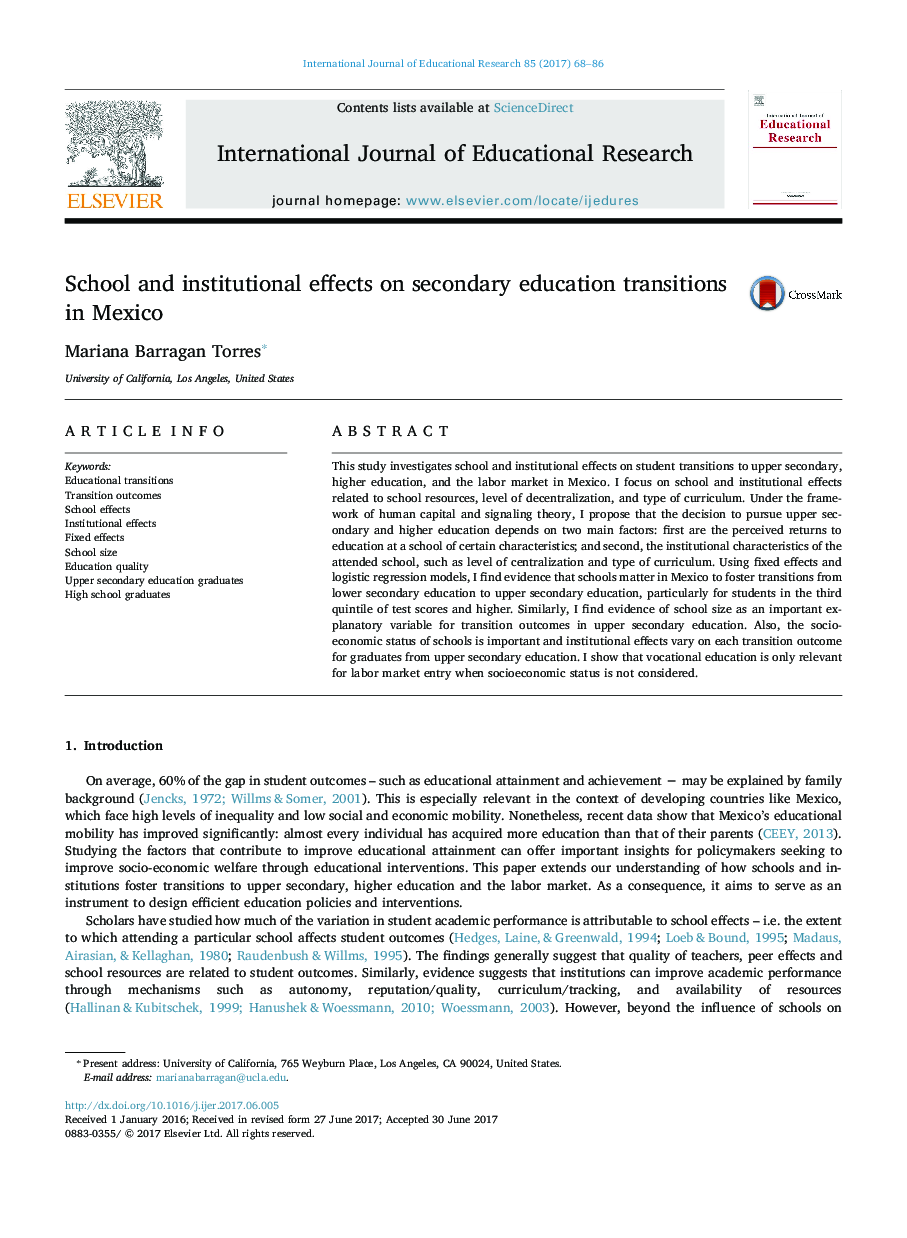| Article ID | Journal | Published Year | Pages | File Type |
|---|---|---|---|---|
| 4938566 | International Journal of Educational Research | 2017 | 19 Pages |
Abstract
This study investigates school and institutional effects on student transitions to upper secondary, higher education, and the labor market in Mexico. I focus on school and institutional effects related to school resources, level of decentralization, and type of curriculum. Under the framework of human capital and signaling theory, I propose that the decision to pursue upper secondary and higher education depends on two main factors: first are the perceived returns to education at a school of certain characteristics; and second, the institutional characteristics of the attended school, such as level of centralization and type of curriculum. Using fixed effects and logistic regression models, I find evidence that schools matter in Mexico to foster transitions from lower secondary education to upper secondary education, particularly for students in the third quintile of test scores and higher. Similarly, I find evidence of school size as an important explanatory variable for transition outcomes in upper secondary education. Also, the socioeconomic status of schools is important and institutional effects vary on each transition outcome for graduates from upper secondary education. I show that vocational education is only relevant for labor market entry when socioeconomic status is not considered.
Related Topics
Social Sciences and Humanities
Social Sciences
Education
Authors
Mariana Barragan Torres,
